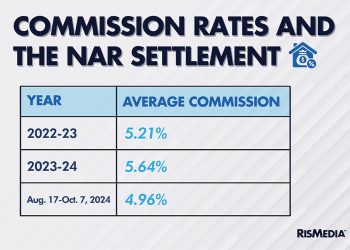Earlier this week, we celebrated and commemorated the life of an incredible leader: Martin Luther King Jr. He was truly an extraordinary leader whose words and example continue to inspire us to eliminate racial injustice. For inspiration this week, there are a few key leadership lessons from Martin Luther King Jr.:
Lead with values and selflessness in mind.
“Every must decide whether will walk in the light of creative altruism or the darkness of destructive selfishness.” – Martin Luther King Jr., Three Dimensions of a Complete Life (1960)
Here’s my take on what Martin King Jr. taught us: Legacy is the unending creation of quality and value for others. Your work should not just be about profit, your work should be a force for good, a force for positivity, a force for humanity. In a 1957 sermon in Montgomery, Ala., he said: “Life’s most persistent and urgent question is, what are you doing for others?” And the decisions you make as you complete your life’s work as a leader should be based off your values, inspired by an ever-present spirit of altruism. “In a very real sense, the character you demonstrate in achieving your purpose is the legacy you leave to those leaders coming along behind you,” Martin Luther King Jr. once said.
Commit to perpetual learning.
“The function of education is to teach one to think intensively and to think critically. Intelligence plus character—that is the goal of true education.” – Martin Luther King Jr., The Purpose of Education (1948)
Here’s my take: We must commit to perpetual learning, to self-improvement and to gaining greater understanding about the world around us. How can we create change—just like Martin Luther King Jr. did for the Civil Rights Movement—if we don’t know what we want to change in the first place? Relatedly, once we identify the actual progress we’d like to make, we have to be comfortable with the discomfort of attempting something entirely new. Real, sustainable growth occurs when you put yourself in an uncomfortable situation and use it to learn, develop and move forward.
Great leadership is about collaboration, and collaboration works best when your team is diverse and inclusive.
“We cannot walk alone.” – Martin Luther King Jr., I Have a Dream (1963)
And here’s my take: There’s a phrase that it’s lonely at the top, but it’s only lonely if you don’t bring others up as you rise. Leadership is a constant exercise in productive collaboration, and as you collaborate, a diverse and inclusive team is the best way to gain different (and much needed) perspectives when working toward achieving a common goal. But differing perspectives won’t be effective unless you have a system for communicating them to the team. For example, my team’s weekly WIG calls establish a cadence of accountability and a regular rhythm of communication. “People fail to get along because they fear each other; they fear each other because they don’t know each other; they don’t know each other because they have not communicated with each other,” Martin Luther King Jr. said in 1958.
Perpetual improvement moves you forward.
“If you can’t fly, then run. If you can’t run, then walk. If you can’t walk, then crawl. But whatever you do, you have to keep moving forward.” – Martin Luther King Jr., Barrett High School in Philadelphia, 1967
Here’s my take: This is a lesson we can apply to any organization or team. A series of small wins compounded over time form the foundation for lasting progress. As you continually push yourself to improve, you get closer to the achievement of your Wildly Important Goals. Progress can be slow and still be worthy of celebration and praise.
Great leaders visualize their goals.
“I have a dream that one day every valley shall be exalted, and every hill and mountain shall be made low, the rough places will be made plain….” – Martin Luther King Jr., March on Washington for Jobs and Freedom, 1963
And here’s my take: A vision isn’t much different from a goal; it’s something you want to achieve that hasn’t come to fruition yet. Create a vision for improvement—a dream—and really imagine your dream realized. Speak your vision, (you can even record it as a voice memo, so it’s with you wherever you go). Listen to your vision often. Internalize your vision into the non-conscious portion of your brain. The non-conscious part of your brain is servile. It sets no goals of its own and does not judge the merit or value of the goal. It only tries to carry out the given order. Train your brain to believe in the achievement of your vision and it will do everything in its power to carry out the order.
So, what’s the message? A leader like Martin Luther King Jr. isn’t just someone filled with empty words or meaningless rhetoric. He was a true thinker, a world-changer, a one-of-a-kind civil activist who had a dream of African American equality and fought to see it through. And like MLK, the first step toward accomplishing your dream is to envision it, write it down, communicate it and strengthen the belief within yourself that you can make that dream come true.
This article is adapted from Blefari’s weekly, company-wide “Thoughts on Leadership” column from HomeServices of America.











